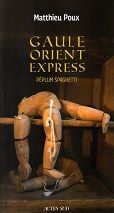ARDOCH, comtﺣ۸ de Perthshire, sur la Allen Water, en Ecosse.
Une belle page avec relevﺣ۸s du XVIIIﺣ۷ siﺣ۷cle et photo aﺣ۸rienne explicites et concordants :
http://www.scran.ac.uk/packs/exhibitions/learning_materials/webs/56/Ardoch.htm
------------
ma page en cours de restauration :
http://marikavel.org/ecosse/ardoch/accueil.htm
JCE





 veux tu
veux tu 

 mon
mon 
 avis
avis 
 sur
sur 
 le
le 
 monosource
monosource 